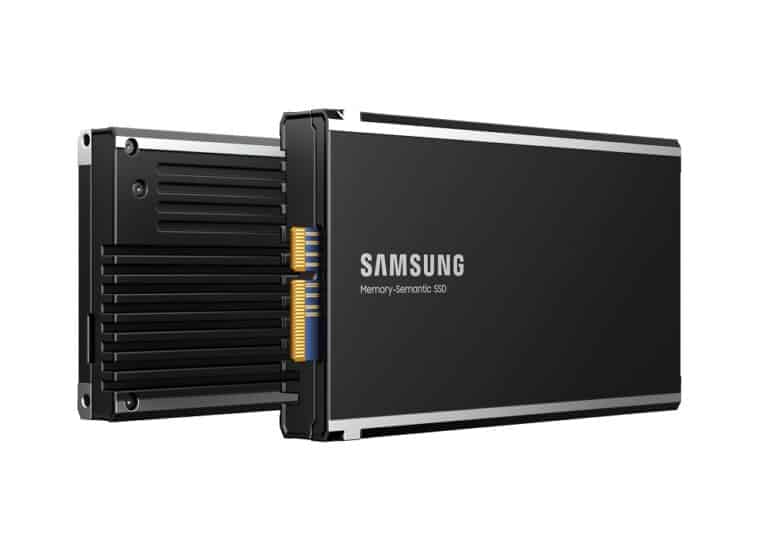Samsung presented four new storage technologies for big data, including a petabyte-scale SSD dubbed Petabyte Storage.
Samsung presented its next generation of ‘Petabyte Storage’ technology. The technology should allow single servers to store more than 1PB of data. Data center operators can thereby house more capacity in a smaller number of servers and a smaller surface area. According to Samsung, energy consumption goes down as a result.
Memory-semantic SSD and ML-storage
The tech giant also introduced its Memory-semantic SSD and ML-optimized storage. The Memory-semantic SSD was designed to combine the advantages of both storage and DRAM memory. The SSD combines Compute Express Link (CXL) interconnect technology with a built-in DRAM cache. This should provide up to 20 times faster random read speeds and lower latency.
The technology ensures that small data ‘chunks’ are written much faster. The technology is particularly suitable for AI/ML applications and workloads that quickly process small data sets. Samsung tailored memory-semantic SSDs to AI and ML solutions.
Telemetry
Lastly, Samsung came up with enhanced telemetry technology for data center SSDs. This technology collects readable metadata from key components of customers’ SSDs. Think of metadata about NAND Flash, DRAM, SSD controllers and firmware. Data center operators can use telemetry to detect and resolve problems early, thereby improving data center reliability and efficiency.
UFS1.0 and new SSDs
Samsung also confirmed that its UFS1.0 mobile storage will enter mass production this month. UFS1.0 mobile storage was announced in May of this year. The technology is a key component in the high-end Samsung smartphones coming to market shortly. The storage technology benefits mobile gaming and AR/VR solutions.
Finally, two enterprise SSDs were announced. The Samsung PM1743 is the world’s first PCIe 5.0 SSD. The Samsung PM1653 SSD is the first 24G SAS SSD.
Tip: Samsung launches second SmartSSD, storage and processor in one
